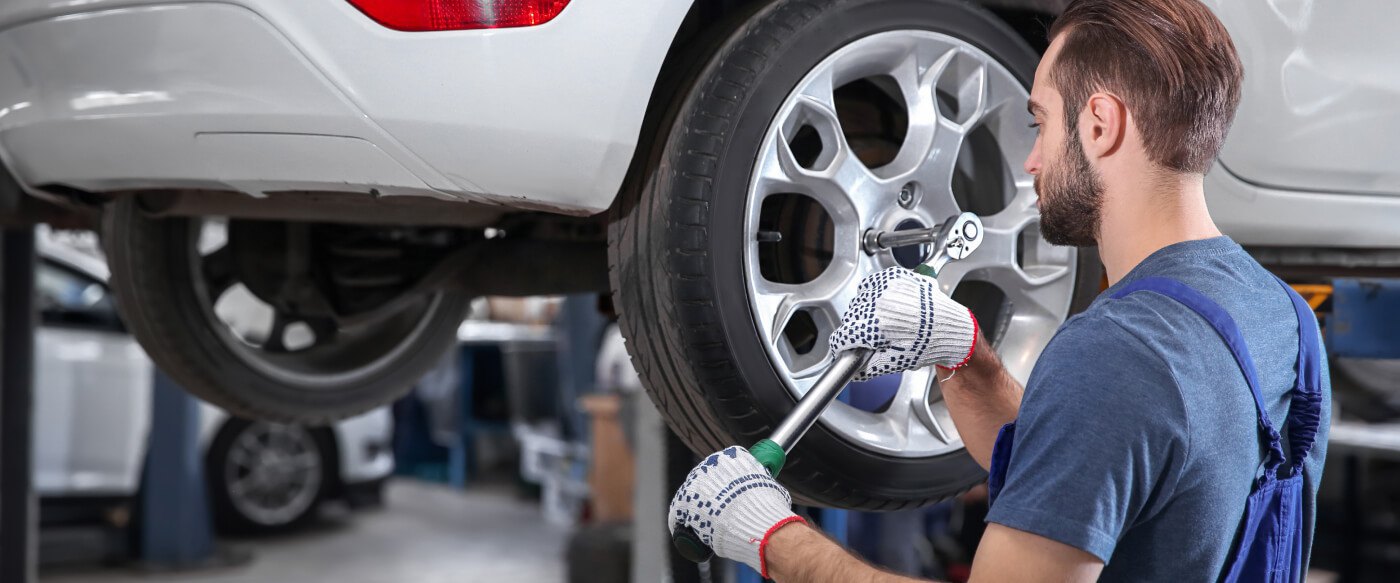Drive with Confidence: GMC Tires Service at Morris Tires
Drive with Confidence: GMC Tires Service at Morris Tires
Blog Article
Tire Service: The Influence of Weather Condition Problems
When it concerns making sure ideal performance and safety and security on the road, comprehending the influence of weather problems on tire service is vital. From scorching warmth to icy roads, each weather condition element can significantly affect tire functionality and overall driving experience. By delving into the effects of differing weather problems on tires, chauffeurs can acquire useful understandings that may enhance their vehicle's performance and durability. In this conversation, we will certainly discover the complex partnership between climate condition and tire service, clarifying the value of weather-specific tire maintenance techniques and factors to consider.
Warm and Tire Performance
When revealed to high temperature levels, tires experience adjustments in performance that can substantially influence lorry safety and handling. The heat generated from prolonged driving or hot weather conditions causes the tire rubber to soften, leading to decreased tread life and enhanced wear.

Winter Effects
Cold weather problems can have a substantial influence on tire performance and safety and security. As temperature levels drop, tire rubber can solidify, resulting in lowered grip on icy or snow-covered roadways. In winter, tires may likewise shed air pressure more quickly, which can affect handling and gas performance. Furthermore, cold temperature levels can cause tire sidewalls to tense, enhancing the threat of damage from pockets or other roadway risks.
To reduce the impacts of cold weather condition on tires, it is crucial to regularly examine tire pressure and inflate them to the maker's suggested degrees. Making use of wintertime or all-season tires designed for winter conditions can also enhance grip and hold on icy or snowy roadways. Appropriate tire upkeep, including normal assessments for wear and damage, ends up being a lot more essential during cooler months to make sure optimal efficiency and safety and security.
Rainy Issues Impact
Throughout rainy conditions, tire performance and security can be substantially affected by the damp roadway surface areas and lowered presence. The tread pattern of tires plays a crucial function in keeping traction on wet roads. Tires with worn-out treads are a lot more susceptible to hydroplaning, where a layer of water develops between the road and the tire surface, resulting in loss of traction. To combat this, motorists should regularly examine their tires for appropriate tread deepness and consider buying tires particularly developed for damp conditions.
Moreover, stormy weather condition can likewise decrease presence, making it testing for chauffeurs to see the roadway in advance clearly (GMC Tire Service). In such conditions, it is vital to adjust driving rates as necessary and keep a safe following distance to enable sudden stops. Properly inflated tires can additionally assist in preserving control on wet roads by giving better handling and hold
Snow and Tire Safety
When driving in snowy conditions, having the ideal tires can make a significant difference in security and efficiency. Winter months tires are created with unique rubber compounds and walk patterns to give far better grip on snow and ice compared to all-season tires.

Additionally, chauffeurs must consider installing tire chains in severe snowy conditions. Tire chains supply additional grip by clutching the snow and ice, enhancing security and control. Nevertheless, it is essential to comply with producer instructions when installing and making use of tire chains to stop damages to the tires and car. By selecting the right tires, maintaining correct rising cost of living, and taking into consideration additional traction help like tire chains, chauffeurs can enhance their safety and security when browsing snow-covered roads.
Weather-Related Tire Upkeep
When confronted with numerous weather, proper tire upkeep becomes an important aspect of vehicle safety and security and efficiency. Weather-related tire maintenance encompasses a variety of methods focused on making certain optimum tire function and durability in various weather scenarios. One key aspect of weather-related tire upkeep is tire pressure policy. Fluctuating temperature levels can cause tire stress to vary, affecting traction and gas performance. On a regular basis adjusting and checking tire stress according to manufacturer referrals is vital for secure driving in transforming weather condition conditions. In addition, tire tread depth plays a significant role in taking care of various weather aspects. Tires with ample step deepness provide better hold on wet or icy roads, minimizing the threat of skidding or hydroplaning. When walk wear gets to a particular depth is vital for preserving traction and security in damaging climate, evaluating tire step on a regular basis and replacing tires. By prioritizing weather-related tire maintenance, motorists can improve safety and security, boost car efficiency, and extend the life expectancy of their tires.
Conclusion
In conclusion, weather have a significant effect on tire efficiency and security. From warm influencing tire pressure and use to cool weather decreasing traction, it is vital to think about the climate when maintaining and using tires. Stormy conditions can reduce grip and bring about hydroplaning, while snow can enhance the danger of crashes if tires gmc tire service are not appropriately equipped. Weather-related tire maintenance is crucial in guaranteeing optimal performance and security when driving.
In this conversation, we will explore the elaborate relationship between weather conditions and tire solution, shedding light on the importance of weather-specific tire maintenance methods and considerations.

Report this page